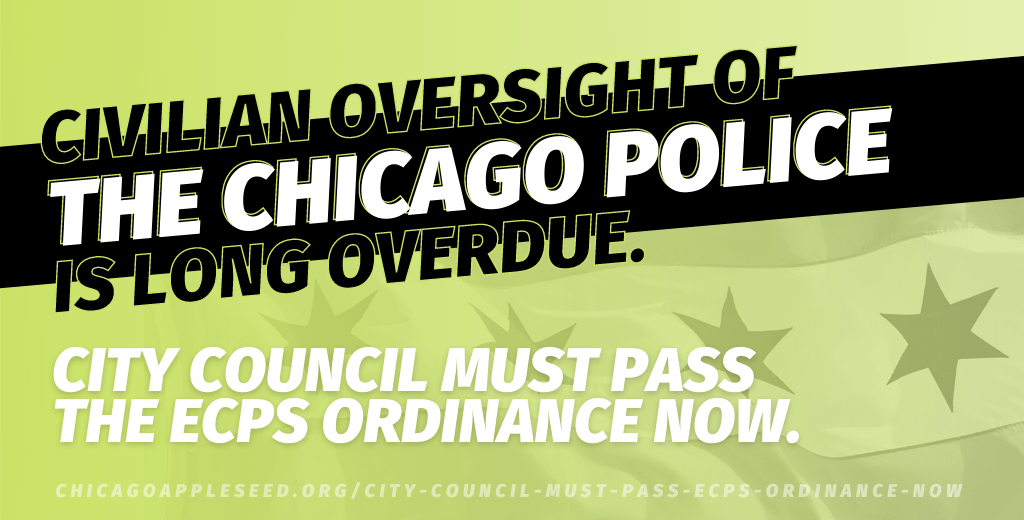Civilian Oversight of the Chicago Police is Long Overdue. City Council Must Pass the “Empowering Communities for Public Safety” Ordinance Now.
Published: April 7, 2021
Chicago’s history of racist, oppressive, and violent policing is well-documented. Residents of Chicago pay more to victims of police brutality per capita than any other city in the U.S. — taxpayers are estimated to pay about $100 million per year in claims and “tens of millions more in legal fees to the lawyers who brought the cases,” according to Rolling Stone. As recently as February, researchers found that white Chicago Police Department (CPD) officers make more stops, arrest more people, and use force more often than Black and Hispanic officers; these trends are more pronounced when white officers are interacting with Black people. Our own analysis of half-a-million CPD records found thousands of cases where people were held by police for over 48 hours from the initial point of arrest before being charged.
Clearly, something must be done to combat the clear injustices in Chicago’s policing institutions. In April 2016, a task force on police accountability recommended that, among other things, Chicago create a “Civilian Oversight Commission to assist in overseeing the operations of the CPD, COPA and related agencies.” For the past five years, though, the City has shown no sense of urgency; City Council has sat on two primary proposals for civilian oversight, the Civilian Police Accountability Council (“CPAC”) and the Community Commission of the Grassroots Alliance for Police Accountability (“GAPA”), without voting on either. These ordinances were scheduled to be voted on by the City Council’s Public Safety Committee in February, but the meeting was cancelled because Mayor Lori Lightfoot wanted more time to propose a “third option.” Still, several months later, she has not made this proposal public.
While some community members are skeptical of the efficacy of community oversight in general, believing that these commissions add yet another layer to an already complex and expansive system, it is absolutely clear that the system we have now is not working. We analyzed the CPAC and GAPA proposals and found that CPAC overhauled accountability systems, shifting many responsibilities to its elected members, whereas GAPA took a relatively more moderate approach, keeping most powers of the Mayor and existing agencies while serving an advisory role in various processes. Both proposals significantly improved the systems holding police accountable to Chicago communities; in early March, these two coalitions united to create a joint “Empowering Communities for Public Safety” (ECPS) Ordinance.
It is imperative that Chicago prioritize a community-led process that demands transparency and accountability from the Chicago Police Department (CPD). The ECPS Ordinance combines facets of the previously mentioned GAPA and CPAC proposals, emphasizing police accountability from a community perspective, and “gives Chicago’s communities a voice in what policing needs to look like in our City.” While Chicago Appleseed Center for Fair Courts supports civilian-led efforts — and urges the City Council to pass the ECPS Ordinance and implement it immediately — it has become increasingly clear that improvements cannot stop there. Police in Chicago will never be fully accountable without addressing the inherent racism and other complexities of our current system, and evaluating other necessary pathways for anti-racist accountability.
Learn more about the “Empowering Communities for Public Safety” Ordinance here. Join the GAPA and CPAC coalitions on Wednesday, April 21, for a rally, car caravan, and noise demonstration to show your support for the ECPS Ordinance. Register here.

